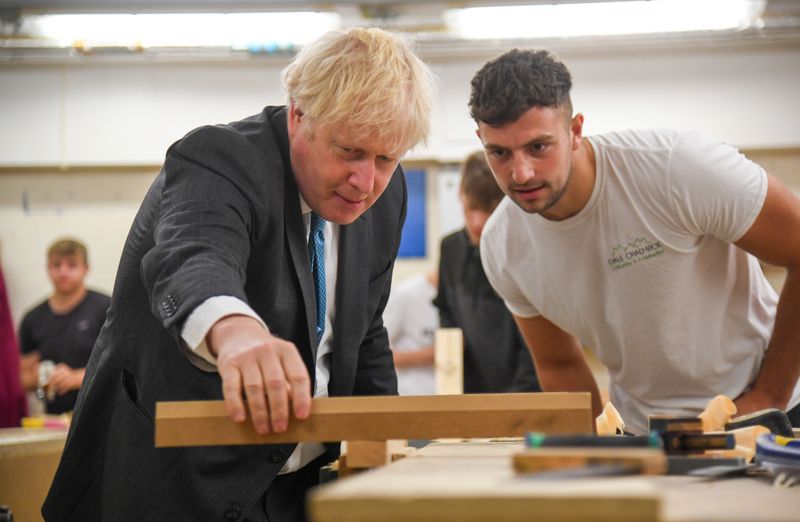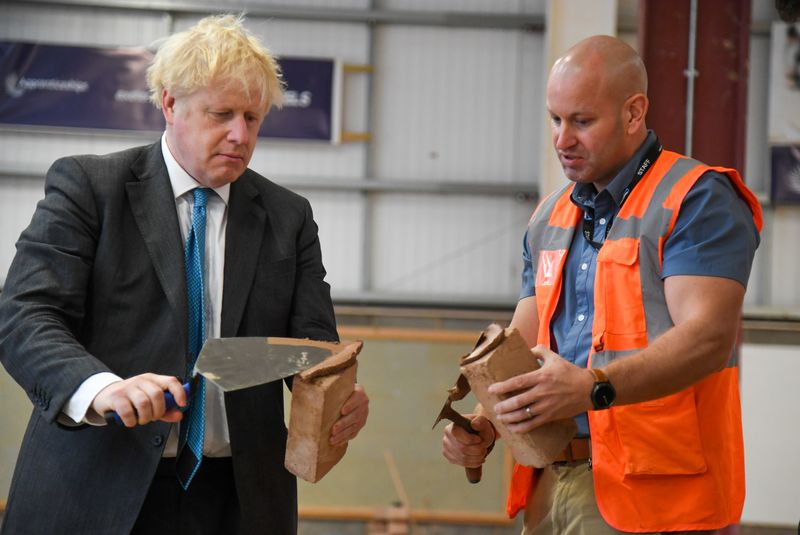LONDON (Reuters) – Britain will give adults the chance to learn new skills, Prime Minister Boris Johnson said on Tuesday, in an effort to boost productivity and aid a recovery from the COVID-19 pandemic.
Johnson said the crisis has exposed shortages of crucial skills and economic weaknesses as he announced measures including free courses for adults without qualifications.
“Our economy has been shaken by COVID, and in the hand-to-mouth scrabblings of the pandemic, the shortcomings of our labour market and our education system have been painfully apparent,” Johnson said in a speech.
He cited construction, engineering, mechanics and laboratory work as areas where there was a shortage of skilled labour.
“At this moment, when we need them so much, there is a shortage of UK-trained lab technicians, just as there is a shortage of so many crucial skills,” he said.
Britain’s unemployment rate, already at over 4%, is expected to rise further as a job subsidy scheme expires next month, to be replaced by a scaled-back job support programme.
“We cannot, alas, save every job. What we can do is give people the skills to find and create new and better jobs,” Johnson said.
The measures will include funding to enable adults without qualifications to take certain college courses without paying fees, as well as flexible loans allowing people to space out their study and transfer credits between colleges.
The government will also seek to boost the number of apprenticeships, with more funding for small and medium firms, and extend a pilot programme known as digital skill boot camps.
The number of people doing vocational training has been falling over the past two decades, the government said, adding that 10% of adults in Britain held a higher technical qualification as their highest qualification, compared with 20% in Germany and 34% in Canada.
Johnson called for an end to what he described as the nonsensical gulf between academic and practical education.
This has been a perennial call by politicians for decades, but has resulted in little real change in terms of the perceived status and attractiveness of vocational qualifications.
British businesses have complained for a long time of a shortage of skills and the country’s productivity has persistently been lower than some comparable economies.
(Reporting by Guy Faulconbridge, William James and Estelle Shirbon; Editing by Lisa Shumaker and Alexander Smith)























